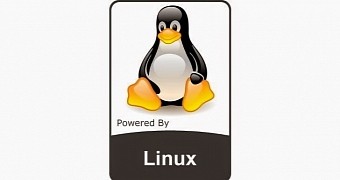Linux kernel developer and maintainer Jiri Slaby announced today the release and immediate availability of what it would appear to be the last maintenance update to the Linux 3.12 kernel series.
Linux kernel 3.12.74 is out and it looks to be the last in the series, according to its maintainer, who urges all those using the Linux 3.12 kernel branch on their GNU/Linux distributions to start considering moving to a newer LTS (Long Term Support) Linux kernel, such as Linux 3.16, Linux 4.1, Linux 4.4, or Linux4.9.
However, if you choose to remain on this branch, at least update to Linux kernel 3.12.74, which changes a total of 78 files, with 834 insertions and 524 deletions, according to the appended shortlog. Improvements are all over the place, for various architectures, drivers, filesystems, security, and the networking stack.
"I'm announcing the release of the 3.12.74 kernel. All users of the 3.12 kernel series must upgrade. Note that this is very likely the last 3.12 stable kernel. Everybody should now really consider jumping to something newer. Besides that, it was nice experience with the 61 releases from .14 to this .74. Thanks go to everybody involved," said Jiri Slaby in the mailing list announcement.
Highlights of Linux kernel 3.12.74
Looking at the things that received attention in the Linux kernel 3.12.74 update, we can notice a bunch of improvements to the x86 hardware architectures, but also to PowerPC (PPC), MetaG, MIPS, s390, and ARM. Additionally, the CIFS, EXT4, GFS2, and NFS filesystems were updated, as well as various TTY, ACPI, GPU (vmwgfx), input (mouse, joystick), HV, MD, MTD, SCSI, iSCSI, video, USB, and networking drivers.
Talking about networking improvements, the Linux 3.12.74 kernel comes with an updated networking stack that includes various fixes to 9p, IPv4, IPv6, L2TP (Layer 2 Tunneling Protocol), packet scheduler, RDS (Reliable Datagram Sockets), and SCTP (Stream Control Transmission Protocol). The usual core kernel and mm work are also present, along with a bunch of security changes.
Again, if you're using and still want to use a kernel from the Linux 3.12 series, please consider updating to version 3.12.74 by downloading the source tarball from kernel.org or via our website and compiling it for your supported architectures. Otherwise, you should consider upgrading to one of the long-term supported Linux kernel branches mentioned above.

 14 DAY TRIAL //
14 DAY TRIAL //